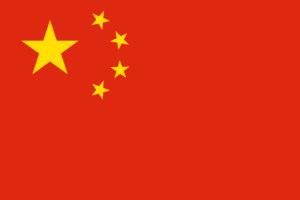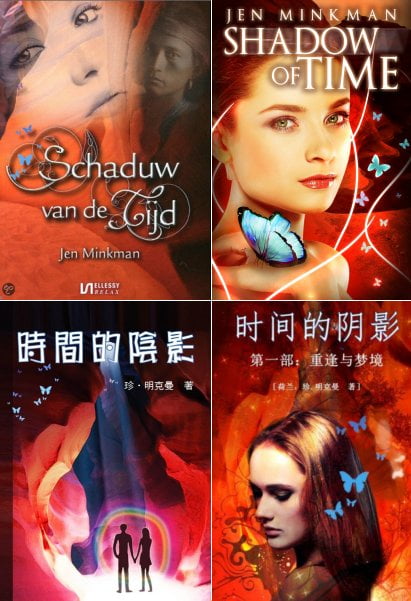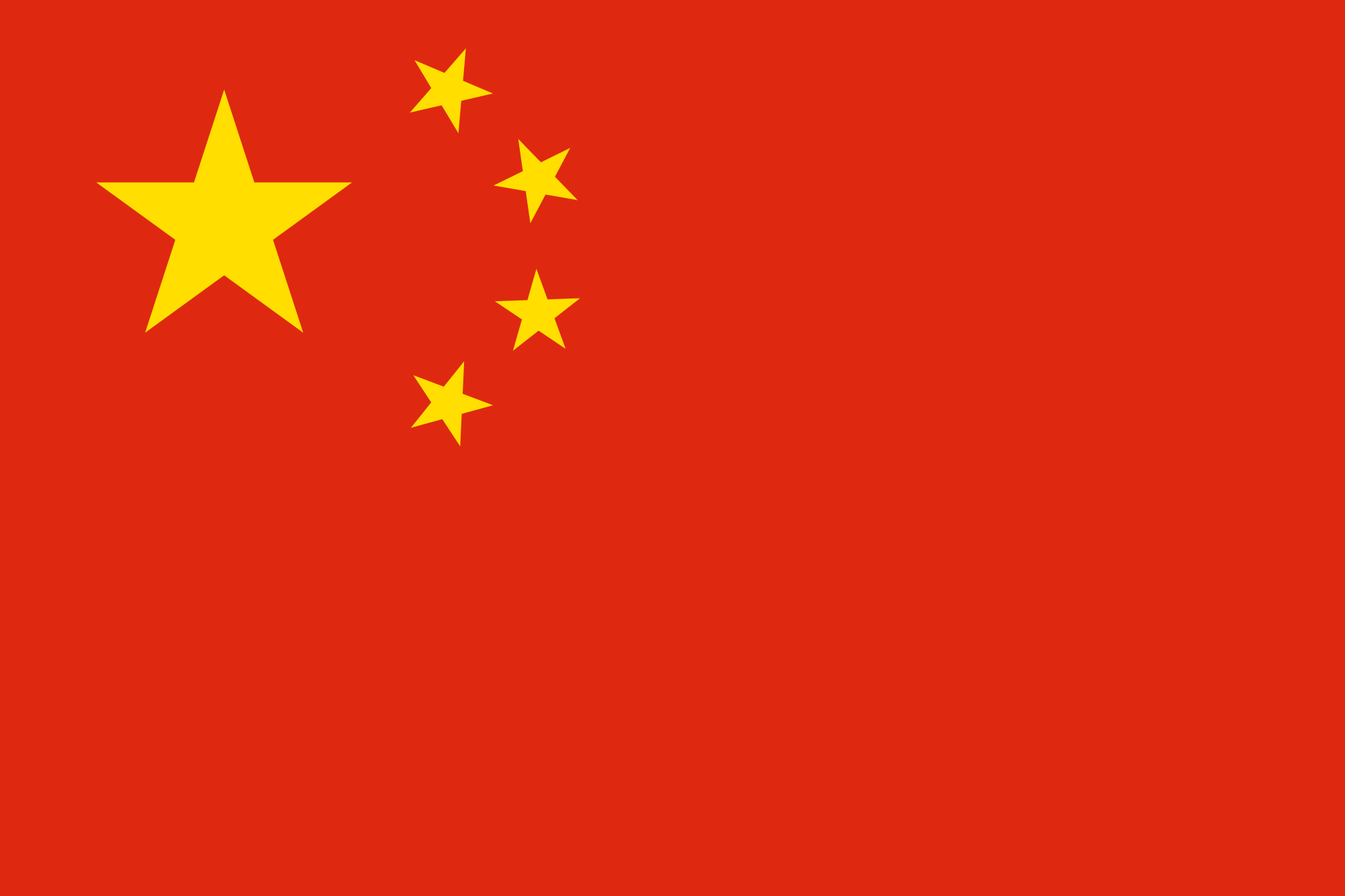Christine Sun, ALLi's China Ambassador, provides a general introduction to the Chinese market for self-published authors and their books, including a helpful case study of Dutch author Jen Minkman's work in Chinese translation.
“Globile” authorpreneurs of the 21st century cannot ignore the Chinese market. In this year's Beijing International Book Fair (BIBF) alone, nearly 40% of the copyright deals – 1,834 signed over five days – were to acquire foreign titles. According to an August 2014 report by Publishing Perspectives, the number of foreign rights bought by Chinese publishers increased by 61% from 2004 to 2012. On average, translated titles represent nearly 8% of the total number of new titles published each year.
 Meanwhile, China's e-publishing market keeps booming. While reading on smart phones continues to be more favourable than e-readers and tablets, sales from online bookstores also enjoyed considerable growth (20-30% annually) in recent years. Although the average price for an ebook remains low (ranging from 1.28 to 8 Chinese Yuan, or 0.21 to 1.30 U.S. dollars), sales results can be significant when one takes into consideration China's huge population. According to China Internet Watch, the number of Internet users in that country reached 667 million in June 2015. As of July 2014, mobile Internet accounted for nearly 90 percent of the total Internet audience.
Meanwhile, China's e-publishing market keeps booming. While reading on smart phones continues to be more favourable than e-readers and tablets, sales from online bookstores also enjoyed considerable growth (20-30% annually) in recent years. Although the average price for an ebook remains low (ranging from 1.28 to 8 Chinese Yuan, or 0.21 to 1.30 U.S. dollars), sales results can be significant when one takes into consideration China's huge population. According to China Internet Watch, the number of Internet users in that country reached 667 million in June 2015. As of July 2014, mobile Internet accounted for nearly 90 percent of the total Internet audience.
Issues of Concern
It is important to keep in mind that Chinese readers exist not only in China (Simplified Chinese) but also in Taiwan and Hong Kong (Traditional Chinese) and other communities across the world (both). This is worthy of note when granting rights to Chinese publishers, but it also matters to those authorpreneurs worrying about piracy and censorship.
In terms of print books, only those with government-issued ISBNs are sold in brick-and-mortar bookstores across China, so international publishers would require local partnership in order to promote their titles there. In comparison, titles in Taiwan and Hong Kong do not need to go through such assessment and approval process. On the other hand, various reports have suggested that online publishing and ebooks (particularly those published and distributed in diverse formats) are good ways to work around China's censorship.
Finally, Chinese readers, like their peers in the West, desire content that is fresh, diverse, original and of good literary quality. Apart from professional cover design and formatting, authorpreneurs are advised to invest on experienced literary translators who are capable of producing accurate, fluent and elegant results. This is despite the fact that other translation services are available for those who are interested in promoting their titles as Chinese ebooks (and even print books), in which royalties are split between authors, translators and service providers.
Case Study: Jen Minkman
Jen Minkman started writing in 2010 as the first-ever published author of paranormal romance in the Netherlands. She has self-translated her novels from Dutch to English and found translators to convert them into German, French, Spanish, Italian, Portuguese and Afrikaans as well. Having enjoyed strong sales in the United States, Netherlands and Spain, her novel Shadow of Time won Gold Medal in the romance category of the eLit Awards in 2014. The book has been available in the Chinese Market since October 2013.

Caption: Jen Minkman's Shadow of Time in Dutch (upper-left), English (upper-right), Traditional Chinese (lower-left) and Simplified Chinese (lower-right, first of five parts)
Jen paid for the translation, publishing and promotion of Shadow of Time as an ebook in both Traditional Chinese and Simplified Chinese. At one point the title received more than 700 reviews on Google Books, with readers in Taiwan and Hong Kong praising the title's literary merits and translation quality. In 2014, using the same translation, Jen got Shadow of Time onto China's Douban by suggesting a royalty-split contract between her, the translator and the platform. Established in 2005, the Chinese social networking service website had a total of 200 million registered users in 2013.
Jen said in a recent email interview: “I've been selling quite well [on Douban], considering the fact that [Shadow of Time] mainly deals with Native American mythology – something that must be very foreign to the average Asian reader.” To further explore the Chinese Market, she submitted another book, The Boy from the Woods, to Fiberead. In January this year, the website organised a team of voluntary translators to turn the book into Simplified Chinese. (More details about Fiberead can be found here.)
Jen said: “Communicating with translators was very easy: they have an online message board and they also emailed me directly with questions. They work in teams, so the book is always meticulously proofread by several people. Someone on that team also takes care of the marketing aspect. Although the book isn't live yet, I have high hopes for what Fiberead can do for me. One thing I'm thrilled about is that my book will also be for sale on Amazon.cn… that's something I myself could not have made happen.”
In terms of monitoring the quality of Chinese translation for The Boy from the Woods, Jen said she could always hire someone to proofread it. “As it is, I trust Fiberead to do a good job on my book, since it's their reputation on the line as much as it is mine. If they were to publish books in crappy Chinese, people wouldn't buy from them again!”
“I don't really have experience with other platforms, except eBook Dynasty, the service I used to get [Shadow of Time] into Chinese. That experience was very positive. Fiberead is bigger, with many translator teams working at the same time. eBook Dynasty is a one-woman show, so it took a bit longer,” Jen said. “What's good about both eBook Dynasty and Fiberead is that they help you with a bit of marketing (newsletters, press releases and so on) and they know what the market's like. I don't have the know-how to make the most out of my titles over there, and they do. I think it's very important that you think about how to get your book into the hands of Chinese readers, or else people might not find it.”
Advice for Other Authors Interested in Chinese Translations
Jen's advice for other authorpreneurs who are interested in employing Chinese translation services: “Go for a service that offers a lot of personal care and/or a team of translators. Fiberead gets your books onto all the important platforms. There's another, similar translation service called Babelcube, but I wouldn't use them for Chinese translations since they have no way of getting your book onto Amazon.cn. You have to know where you want your books to sell before you decide on a service.”
Finally, Jen's advice for those who are interested in succeeding in the Chinese Market: “Be willing to invest some time and money before it starts to pay off. I invested in the translation of my book into Chinese the first time around; in the meantime, I have almost made my investment back, but it was a struggle. Also, educate yourself about all the different Chinese ebook platforms and try to go direct with each and every one of them. It will pay off in the long run if you do it that way. Be proactive; contact Chinese websites [and] write a very simple letter asking about the possibility to upload your Chinese ebook to their site. You never know!”
Declaration of interest: Christine Sun is the translator of Jen Minkman's Shadow of Time and manager of eBook Dynasty, the Melbourne-based Australian publisher that published and continues to promote the title as an ebook in both Traditional Chinese and Simplified Chinese. Details about the Chinese ebook can be found here. eBook Dynasty is a Partner Member of the Alliance of Independent Authors.
Author's Note: This article is a general introduction to the Chinese Market. I have previously discussed the success of Fiberead and how it can help authorpreneurs to translate, publish and promote their titles as Simplified Chinese ebooks here, and will continue to explore the pros and cons of crowd-sourcing translation in the near future.
Useful overview of #Chinese market for #selfpublished books in translation with @JenMinkman case study Click To Tweet








Hi,
Thank you for this article.
What’s about travel-avdenture books? I have already published five books in my country (Serbia), where I am known as an author of travel and adventure books, as well as on my bicycle trip around the world.These are all novels or adventure novels, while the first of them has a strong love story. They are already translated into the English. I am thinking about publishing the first one in China.
My story is about a woman from a small patriarchal Balkan country, who, in 2011, in her 40s decided to leave her comfort zone in order to cycle around the world, with almost no experience and with a $6 daily budget. She went with a companion and partner she barely knew. In the first year of travel, everything that could go wrong did go wrong… Everyone thought she was going to give up, but she continued by herself – and today, six years later, she is still on her Way. In the meantime her travel has turned into her (nomadic) way of life.
I wonder if this topic would be interesting for readers in China.
The second book is about my climbing Thorung La pass at Nepelese Himalaya, at 5614 m and it’s adventure book.
The third one is about crossing the Gobi desert.
Btw, i am living in China and planing to give speaches about my travels in Beijing, Shenzhen, Shangai, HK…what will for sure help to selling them.
Thanky you in advance,
Snezana
Hello Christine, great post from you. You did a fantastic job in this post. I just want to ask if there are book promotion sites that can promote ones book in China maybe through the Chinese social media just like we have Bargains Booksy, Freebooksy, BookBub or book promotion gigs similar to those found in Fiverr.
Thanks.
[…] is growing fast and is increasingly open to foreign titles, although foreign books sell better when translated to Mandarin. Unlike in Hong Kong and Korea, genre fiction is big in China. Readers like reading […]
Hi,
there is another transation service based on revenue sharing. No upfront costs:
http://www.traduzionelibri.it
Have a look… 🙂
Regards,
Dave
Hello Christine and others
Thank you for sharing your insights into publishing in China. I recently self-published my children’s book, “Bundle of Secrets: Savita Returns Home” in dual-language (English and Chinese) and would like to publish/market it preferably in China and other countries with Chinese populations. The book is about migration and adopting a new home. The book won the Africana Book Award and one of the professors here at my university in USA helped to translate it. The book is currently available on Amazon (USA and Europe) I have shared the link below. I would like to make it available initially online as ebook or on an online platform that will distribute the book in China, Taiwan etc. I shall greatly appreciate any advise you can provide. Again link to the book on Amazon is below. Thank you for your kind attention. Mubina H. Kirmani.
https://www.amazon.com/Chinese-Translation-Bundle-Secrets-Returns/dp/0692658432/ref=sr_1_3?s=books&ie=UTF8&qid=1488483481&sr=1-3&keywords=chinese+bundle+of+secrets
I share my ebooks/micro novels free…absolutely…success for me is for people to read and enjoy my stories…..I would like to share them around the world…..but free ebooks are difficult to distribute because no one makes money from them? Any suggestions gratefully accepted
I joined a publishing start up in China by the name of http://fiberead.com/
They handle everything including translation, promotion, listing on all the various sites, keep check of of sales and for free ( the royalty split heavily in their favour )
It can be a bit of a slow burner from uploading your original manuscript through to the final translation being completed but you will get there in the end, it was an overall quicker process on my 2nd book that I uploaded compared to the 1st attempt.
The royalty split is normally 70/30 in their favour, but I think I would have never sold any books in China without their help so in my humble opinion , 30% is better than zero…
I also wrote about the benefits in an article here Sell Your Ebooks in China to Make More Money – Money Earning Ideas http://www.moneyearningideas.com/earn-money-from-ebooks/sell-your-ebooks-in-china/
Christine,
Thanks for your articles and comments which are very interesting indeed.
I’ve written a philosophical fable based on Lao Tzu and the Tao Té Ching involving a thirteen-year old kitchen girl whom he helps and who discovers that she is in fact heiress to the Peacock Throne. It’s a story of travel and adventure where we learn more about Lao Tzu’s teachings (and the I Ching and Tai Chi – or its precursor).
I’d be interested to know whether you thought this would be viable in translation (back to the original Chinese on some parts) and whether Young Adults in the Chinese speaking world in your view would be interested in finding out more about Taoism through a rags-to-riches story.
I’ve been thinking of putting it up on Smashwords, but until now have just been polishing it up and putting it about traditional publishers (no real interest so far…)
Thanks for any help or suggestions.
I have 1 of my 5 books a mystery/thriller that I would like to get translated and sold overseas, how can I find out if my book would be liked by Chinese readers? also what is the cost to do this? I want to find new outlets for my 2 fiction books.
This is my webpage, yes its Facebook but the free websites don’t do me justice. I sell my books through Smashwords as they have more distribution and e-forms and also on Amazon. Also you can go to that page and see if my two mysteries would sell well in China.
Hi Christine
My book Actress has been translated by Fiberead, and while I can’t comment on the translation itself, the communication between us, and the marketing of the book, has been minimal, so far as I can tell. Their instructions on publication were to ask for reviews from the translating team members and I got one review, from the main translator. I’ve asked for an electronic copy of the book for my own interest and have not even had a reply to that request (I tried to buy it from Amazon.cn but it’s not possible to do that from the West). At the moment the book is doing well in a weird category – Kindle eBooks > examination > Orsay, competition – whatever that means – where it’s mingling with books on mathematics …
So, I’d like to work closer with the translators and marketers but I don’t get very satisfactory replies, if any, from them. Advice please!
Thanks for this feedback, Keith, which we will include along with Chritine’s piece in our Rights guidebook. We’re interested in hearing case histories about translation so do let us know how you are getting on in the various territories.
Hello Keith,
My research shows that Fiberead put out a call for voluntary translators for your book on July 15, 2014. They released the book through Zhejiang Publishing United Group, their usual partner, on August 8 this year, and you can some of the content here on Amazon. The category on Kindle China in which your Chinese ebook is located, says “Olympics, competition”. I guess this is because the Chinese promotional materials immediately after the title says your story is about “a journey of personal growth embarked over the contest to be selected as a major acting role, the warmest and most realistic self-discovery, dedicated to you, us and them in our twenties”. The reader’s review is very good, though.
Using the preview function on Amazon, I have compared the first several paragraphs of the Chinese translation and your English text (up to “director seeks easily-excited replacement”). Let’s just say, while different translators do have different styles, in the same way that different journalists and writers would have different ways of describing the same thing, I can say that based on what I have read so far, the Chinese translation needs to be improved. One, it is much wordier than your writing style that is precise and succinct. Two, your use of italics is not reflected in the translation at all. And finally, in various places, such as “easily excited replacement”, the translators seem to have misunderstood what you meant.
A survey of Fiberead’s “tweets” on Sina Weibo shows the company did not put bits and pieces of the translation of your book online for public critique at all. They usually do so in tricky cases, and I have seen some heated debate over some titles. They would have the four translators proofreading each other’s work, and one of them would have been in charge of unifying the translation style throughout the whole book, as well as its marketing and promotion (e.g. plot description, blurbs, etc). However, as I am not able to read through the whole translation as well as your book, I am unable to make further comments at this stage.
My own experience shows that some Chinese translators, particularly the amateur ones, would prefer not to bother the authors. One, they are not used to communicating directly in English in writing, particularly in cases where specific use of English vocabulary is required to figure out the precise meaning of a word or phrase in a certain context. (Instead, you normally get questions such as “Drear Author, you said such and such here. What does it mean?”) They further worry that they cannot express themselves well, so that authors will underestimate their (self-perceived) ability to translate adequately.
That is about all I can say at this stage… I hope it is of some use to you. I would urge you to contact Fiberead and keep hassling them until they give you a copy of the Chinese ebook.
Sincerely,
Christine Sun
Interesting article. I am interested in the Chinese market, since my series, The Fall of the Americas, has China as one of the three main entities. I am not interested in paying more for translation and marketing services than I can possibly recover from sales at $1.50 U.S. per book. Any suggestions would be appreciated. My e-books are on Amazon and sell in the U.S. for $2.99. Why? Competition. Did I miss the mention of competition in your article?
Hello Ben,
Competition cannot and should not be avoided. We should all do the best we can. Good writers stand out not only because of the quality of their books, but because they persist on writing quality books, in China as in the English-speaking world. In the Chinese Market, however, good translation definitely matters if you want to succeed there. I hope you can find useful information in this article and my other one on Fiberead.
Cheers, Christine Sun.
Thank you Christine for the reply. I think Ms. Minkman hit the nail on the head. “Be willing to invest some time and money before it starts to pay off. I invested in the translation of my book into Chinese the first time around; in the meantime, I have almost made my investment back, but it was a struggle.” She neglects to mention the cost of this huge risk regarding translation. Mr. Dixon mentions the kind of experience nobody wants to have.
Thank you Keith for the warning.
Ben